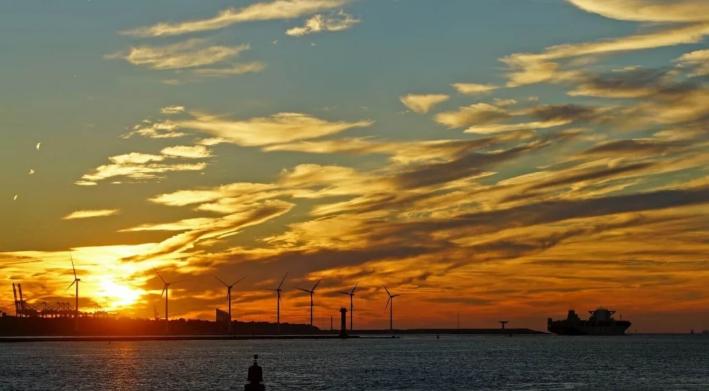Hot on the heels of last month’s announcement to become a net zero energy business by 2050, Shell has today revealed its intention to create a green hydrogen hub in the port of Rotterdam, using green electricity generated by wind power.

Expected to go into operation by 2023, the green hydrogen plant will produce about 50,000-60,000kg of hydrogen per day and have a capacity of around 200MW.
It will be constructed at a dedicated industrial site realised by the Port of Rotterdam Authority at Maasvlakte for electrolysers operated by various companies.
The green hydrogen produced initially will be transported via a new pipeline, which will be realised as part of a joint venture between the Port of Rotterdam Authority and Gasunie, to Shell’s refinery in Pernis.
Here, the green hydrogen will be used to decarbonise the production of fuels, saving at least 200,000 tonnes of carbon dioxide (CO2) per year. The hydrogen will also be used as fuel for trucks.
“The energy transition calls for guts, boldness, and action,” said Marjan van Loon, President-Director of Shell Nederland.
“We are proud that together with our partner Eneco we are participating in the tender to build Hollandse Kust (noord) offshore wind firm.”
“Through the connection of this wind farm to our possible future green hydrogen plant in the Port of Rotterdam, we want to develop a new value chain together with our partners and governments – from wind to hydrogen – to create a green hydrogen hub.”
“We regard this as a stepping stone for the recently announced NortH2-project. These projects fit well with our aspirations to provide more and cleaner energy to our customers, at home, on the go and at work.”
The new plant and pipeline are part of a series of projects associated with the production, import, use and transfer of hydrogen in which the Port Authority is working together with a variety of partners.
These concrete projects seamlessly tie in with the hydrogen outlook recently published by the Dutch government.
“We are currently expediting our plans to construct a public hydrogen network in the port area. The work on this backbone for Rotterdam’s industrial sector will be rounded off concurrently with Shell’s electrolyser,” said Allard Castelein, CEO of Rotterdam Authority.
“A main transport network like this can be used to connect producers and users. This in turn helps to create a market and boosts the production and consumption of hydrogen.”
“Besides accommodating production, in the longer term Rotterdam will also play a crucial part in the import of hydrogen thanks to the realisation of multiple hydrogen terminals.”
“Hydrogen promises to become the energy carrier of the 21st century. In Northwest Europe, we will not be able to produce sufficient hydrogen locally, meaning that a large volume will need to be imported.”
“Rotterdam will play a central role in this process – similar to its current role in the oil sector. This allows us to reinforce the port of Rotterdam’s position as an important pillar of the Dutch economy.”
Hydrogen pipeline
The Port Authority and Gasunie plan to jointly construct and operate the hydrogen pipeline, which will run parallel with the A15 motorway between Maasvlakte and Pernis.
The parties plan to take the definite decision to greenlight construction in the first half of 2021.
In the near future, Rotterdam’s hydrogen pipeline will be hooked up to the national hydrogen network developed by Gasunie.
Shell will be constructing its hydrogen plant at a dedicated industrial site realised by the Port Authority at Maasvlakte for electrolysers operated by various companies.
Another project planned at this site is H2-Fifty (the construction of a 250 MW electrolyser operated by BP and Nouryon). This facility is expected to become operational in 2025.
Situated on the coast of the North Sea, this special industrial site (named a ‘conversion farm’) uses offshore wind power to produce hydrogen. The hydrogen produced at the plant will be transported to users via a pipeline.